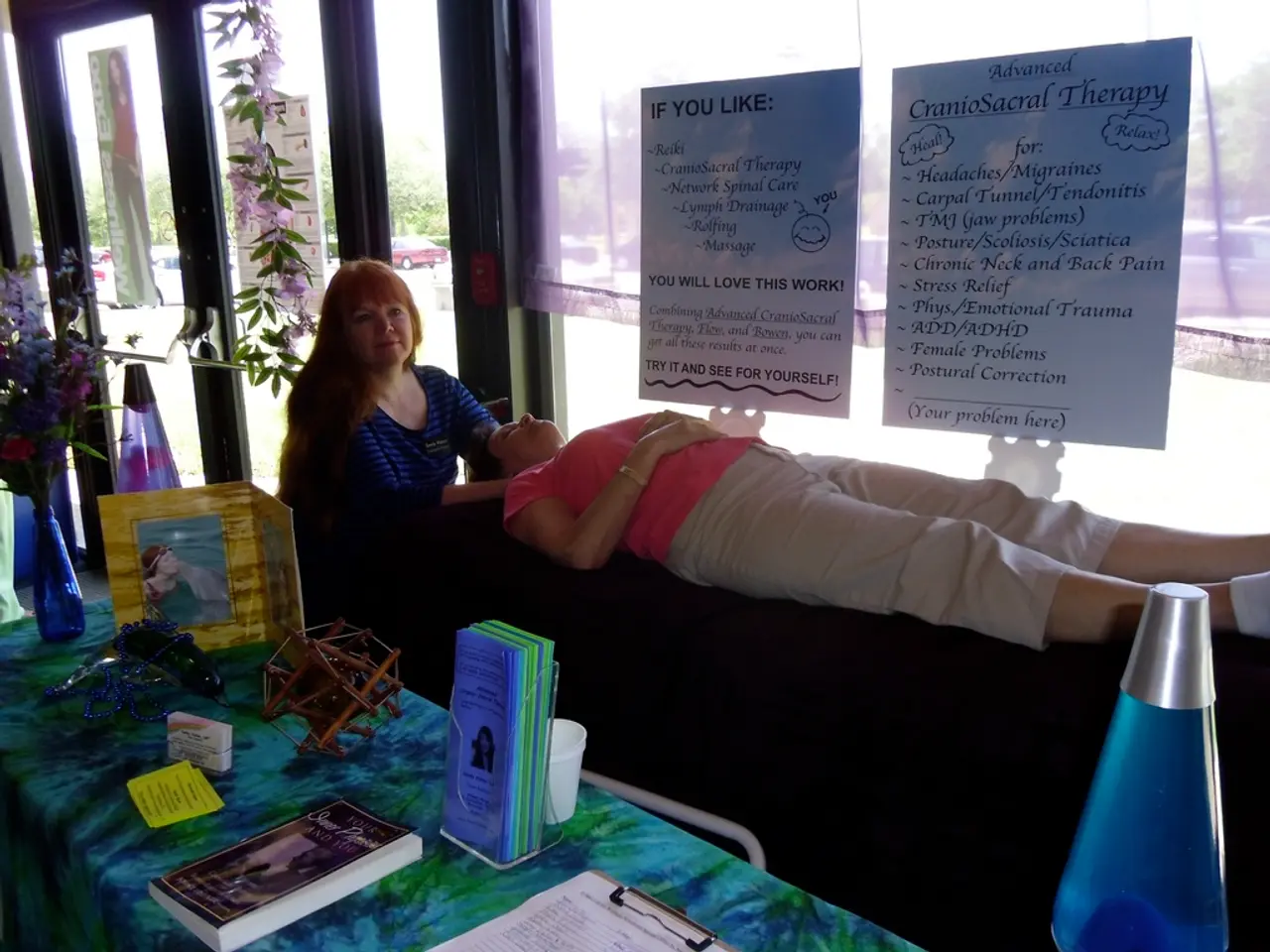Giving Life Another Try: Overcoming Incurable Depression with a Brain Pacemaker
- by Jannik Jürgens
- 13 Min
Struggled with unending depression - relief found through pacemaker intervention - Unremitting depression proved resistant to treatment - until she received a pacemaker implant.
Monika Kelle, a 54-year-old, musters the courage to take her final stand against the relentless grip of depression. She finds herself in the operating room of the University Hospital Freiburg, as neurosurgeons secure a metal frame to her skull. The temporary calm that had washed over her is replaced with a wave of fear as an anesthesia mask is pressed to her face.
Deep beneath the surface of the chaos, panic begins to swell within Kelle.
This drastic measure — a brain pacemaker — had long been dismissed as an extreme option in her treatment journey. But, with conventional methods failing to provide solace, she left no stone unturned in her quest for relief.
The Modern Marvel: Deep Brain Stimulation
Deep brain stimulation (DBS), while commonly linked to Parkinson's disease and obsessive-compulsive disorder (OCD), has been explored as a treatment for severe, treatment-resistant depression. Positive results from recent studies suggest DBS plays a role in navigating the unforgiving depths of depression for those who have exhausted all other options [4].
Treading cautiously, Monika opted for DBS, knowing the potential benefits yet mindful of the risks ahead.
Confronting the Hidden Dangers
With any surgical intervention, there’s an element of uncertainty. Even as advancements continue to improve the safety and efficacy of procedures like DBS, potential complications can lurk just beneath the surface.
In rare cases, surgical risks include bleeding, infection, and injury to the brain — all uncommon occurrences (less than 1%) [2]. When such an invasive procedure is being performed, choosing a skilled team of experienced neurosurgeons and psychiatrists is essential to minimize risk and maximize success.
Common side effects during the DBS programming phase include hypomania (elevated mood and energy) and insomnia, usually temporary and manageable through adjustments to the stimulation levels [2].
However, the adjustment period, during which optimal stimulation settings are achieved, can prove challenging. The long-term efficacy of DBS treatment remains uncertain, and there's a possibility of growing dependence on the device as it becomes an ongoing commitment to monitor and manage its settings as needed.
As Monika lay there, her thoughts weaving together the risks and potential benefits, she knew that this surgical intervention represented her last hope. And with herworld-class team of medical professionals prepared to provide her with the very best care, she allowed the anesthesia to overtake her, casting herself into the unknown, ready to embark upon her new path to healing.
The following are the main topics covered by this report:
- The use of deep brain stimulation (DBS) for treating severe, treatment-resistant depression, as exemplified by Monika Kelle's case.
- The potential risks and side effects associated with DBS, including surgical risks, common side effects during the programming phase, and the long-term efficacy of the treatment.
Furthermore, the article discusses Monika's decision to undergo the DBS procedure and her determination to combat her incurable depression with this innovative treatment while under the care of expert medical professionals at the University Hospital Freiburg. The report also highlights the exploration of DBS as a treatment for mental health conditions beyond depression.








